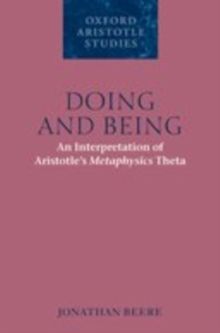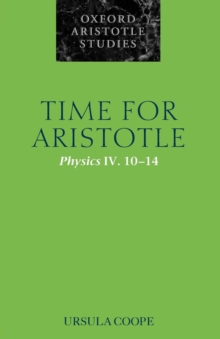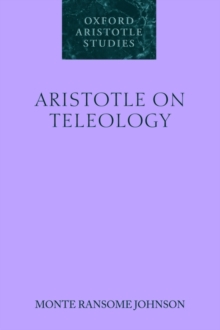
The Powers of Aristotle's Soul PDF
by Thomas Kjeller Johansen
Part of the Oxford Aristotle Studies Series series
- Information
Description
Aristotle is considered by many to be the founder of 'faculty psychology'-the attempt to explain a variety of psychological phenomena by reference to a few inborn capacities.
In The Powers of Aristotle's Soul, Thomas Kjeller Johansen investigates his main work on psychology, the De Anima, from this perspective.
He shows how Aristotle conceives of the soul's capacities and how he uses them to account for the souls of living beings.
Johansen offersan original account of how Aristotle defines the capacities in relation to their activities and proper objects, and considers the relationship of the body to the definition of the soul's capacities.
Against the background of Aristotle's theory of science, Johansen argues that the capacities of the soul serve as causalprinciples in the explanation of the various life forms.
He develops detailed readings of Aristotle's treatment of nutrition, perception, and intellect, which show the soul's various roles as formal, final and efficient causes, and argues that the so-called 'agent' intellect falls outside the scope of Aristotle's natural scientific approach to the soul.
Other psychological activities, various kinds of perception (including 'perceiving that we perceive'), memory, imagination, are accounted forin their explanatory dependency on the basic capacities.
The ability to move spatially is similarly explained as derivative from the perceptual or intellectual capacities.
Johansen claims that these capacities together with the nutritive may be understood as 'parts' of the soul, as they are basic tothe definition and explanation of the various kinds of soul.
Finally, he considers how the account of the capacities in the De Anima is adopted and adapted in Aristotle's biological and minor psychological works.
Information
-
Download Now
- Format:PDF
- Publisher:OUP Oxford
- Publication Date:18/10/2012
- Category:
- ISBN:9780191633010
Information
-
Download Now
- Format:PDF
- Publisher:OUP Oxford
- Publication Date:18/10/2012
- Category:
- ISBN:9780191633010



